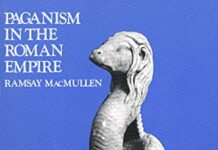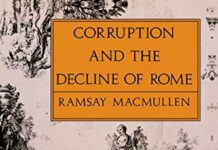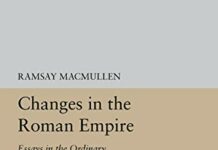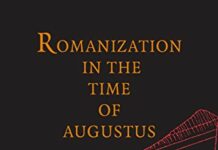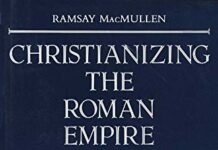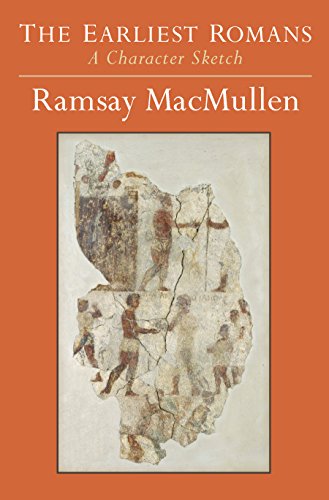
Ebook Info
- Published: 2011
- Number of pages: 206 pages
- Format: PDF
- File Size: 0.84 MB
- Authors: Ramsay MacMullen
Description
The ancient Romans’ story down to 264 B.C. can be made credible by stripping away their later myths and inventions to show how their national character shaped their destiny.After many generations of scholarly study, consensus is clear: the account in writers like Livy is not to be trusted because their aims were different from ours in history-writing. They wanted their work to be both improving and diverting. It should grow out of the real past, yes, but if that reality couldn’t be recovered, or was uncertain, their art did not forbid invention. It more than tolerated dramatic incidents, passions, heroes, heroines, and villains. If, however, all this resulting ancient fiction and adornment are pruned away, a national character can be seen in the remaining bits and pieces of credible information, to explain the familiar story at least in its outlines.To doubt the written sources has long been acceptable, but this or that detail or narrative section must always be left for salvage by special pleading. To press home the logic of doubt is new. To reach beyond the written sources for a better support in excavated evidence is no novelty; but it is a novelty, to find in archeology the principal substance of the narrative—which is the choice in this book. To use this in turn for the discovery of an ethnic personality, a Roman national character, is key and also novel.What is repeatedly illustrated and emphasized here is the distance traveled by the art or craft of understanding the past—”history” in that sense—over the course of the last couple of centuries. The art cannot be learned, because it cannot be found, through studying Livy and Company. Readers who care about either of the two disciplines contrasted, Classics and History, may find this argument of interest.
User’s Reviews
Reviews from Amazon users which were colected at the time this book was published on the website:
⭐4.5 Stars. MacMullen takes an interesting approach trying to ferret out the nature of the ancient Romans. He examines the royal period (to 509 B.C.E.) and the early Republican period to 264 B.C.E. in order to determine which behaviors, practices, and rites continued over hundreds of years and how they revealed Roman character. His analysis shows that the Romans were conservative, tolerant, aggressive, and practical. These traits allowed the Romans to expand and consolidate their conquests / alliances in a manner that greatly reduced the chance of rebellion since the conquered / allied peoples became part of the Republic and not subjects of it. Rome was an inclusive society that readily accepted new gods and people. In addition, it gave freed slaves citizenship with all the rights that it entailed. Many writers of the ancient world were amazed by this. Ancient Rome was truly a unique experiment in empire building; one that succeeded for almost a 1000 years in the western Mediterranean and another 1000 years in the eastern.My only complaint about the book is MacMullen’s love of run-on sentences (six or more lines long). Too often his writing style requires the reader to go through some mental gymnastics in order to follow his train of thought and to connect the dots. However, the effort is worth it since the book contains a great deal of valuable information.
⭐An excerpt from the review on StrategyPageMacMullen, author of numerous works in Roman history, culture, and politics, among them
⭐and
⭐, divides the book into two parts, the age of the kings (from the origins of the city to 509 BC) and the early republic (509-264 BC). In each both part he looks at events by examining the basic features of Roman society. He argues convincingly that the Romans were consistently conservative, tolerant, aggressive, and practical. These traits accounted for the relative stability of Roman institutions, their willingness to accept others as Romans, their expansionism, and their ability to integrate new ideas into their institutions. So most often, conquered peoples became Romans, rather than subjects, while enriching Roman society with some of their social, cultural, and religious ideas, and particularly even military institutions, the Romans being very open to using ideas and technology borrowed from erstwhile foes.
Keywords
Free Download The Earliest Romans: A Character Sketch in PDF format
The Earliest Romans: A Character Sketch PDF Free Download
Download The Earliest Romans: A Character Sketch 2011 PDF Free
The Earliest Romans: A Character Sketch 2011 PDF Free Download
Download The Earliest Romans: A Character Sketch PDF
Free Download Ebook The Earliest Romans: A Character Sketch
